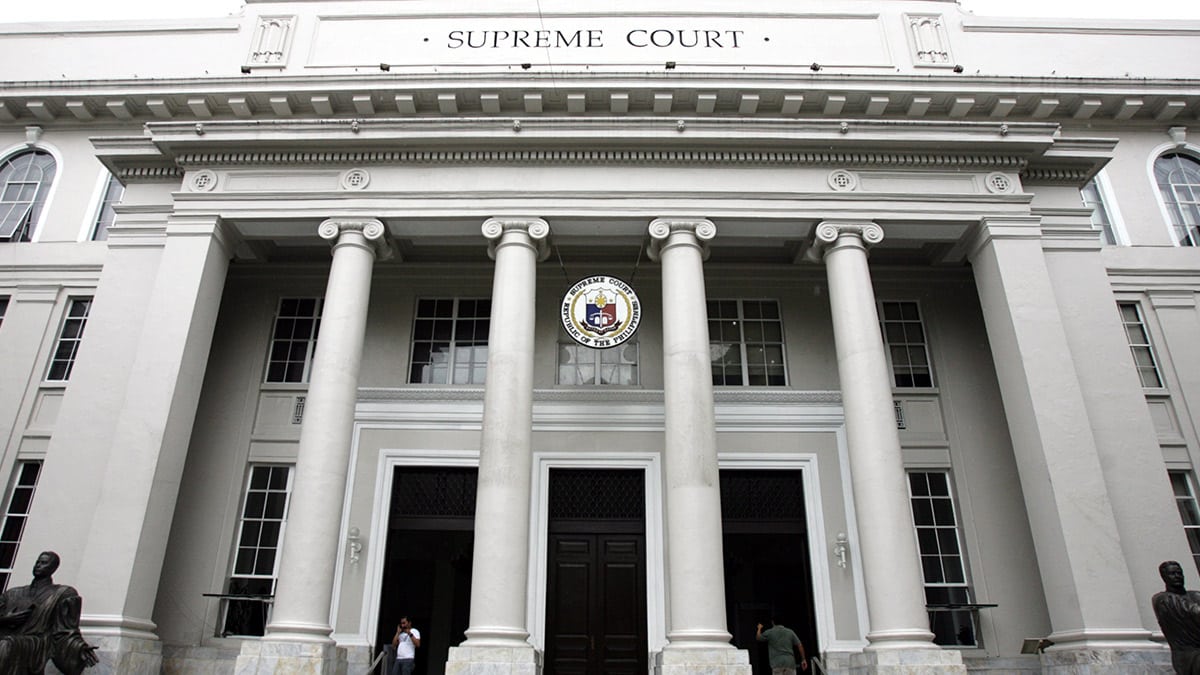SC: P90.7-M benefits for PNCC execs illegal

AFFIRMED The high tribunal sided with the Commission on Audit, which said in 2011 that the gratuity benefits were unnecessary and excessive as the firm had been incurring losses. —Inquirer file photo
MANILA, Philippines — The Supreme Court has affirmed the decision of the Commission on Audit (COA) to disallow the disbursement of P90.7 million worth of gratuity benefits to former directors and senior officers of the state-run Philippine National Construction Corp. (PNCC) from 2007 to 2010.
In a full-court decision promulgated on May 21 but made public only on Monday, the high tribunal voted 15-0 to dismiss the petition for certiorari filed by former PNCC president Ma. Theresa Defensor, former chair Arthur Aguilar, former directors Rolando Macasaet and Wilfredo Cu, and former board members Jeremy Parulan, Fermin Lusung, Antonio Vilar, Enrique Cuejilo and Guillermo Hernandez.
READ: Return big bonuses, government firm execs told
The Supreme Court noted that “obvious warning signs” such as the losses incurred by the PNCC as late as 2009 should have cautioned the petitioners about the illegality of their gratuity benefits, considering they were board members at that time.
The case stemmed from the notice of disallowance (ND) issued by the COA audit team in 2011 regarding the granting of gratuity benefits to the petitioners.
Article continues after this advertisementAccording to the ND, the disbursement was contrary to the COA circular issued in 1985 on irregular, unnecessary, excessive, or extravagant expenditures, as well as the 2002 circular issued by the Department of Budget and Management (DBM).
Article continues after this advertisementThe disbursement was disallowed for being “excessive and unreasonable” because the PNCC had been incurring losses from 2003 to 2006. It was also deemed “illegal” based on the finding that the board had no authority to create a retirement fund.
Reasonable per diem only
The benefits were also found to be “extravagant” since board members were entitled only to a reasonable per diem under the law.
In the case filed before the Supreme Court, the petitioners argued that the laws, circulars and issuances cited by COA, which referred to government agencies and government-owned and controlled corporations (GOCCs) did not cover PNCC.
They claimed that Section 36(10) of the Corporation Code must instead be applied, which supposedly allowed the board to create the retirement fund, the petitioners said.
In dismissing the petition, the high court ruled that PNCC was a GOCC without an original charter but under COA’s audit jurisdiction.
It also held that COA did not commit grave abuse of discretion in finding that the gratuity benefits paid to PNCC’s directors and senior officers from 2007 to 2010 were disallowable disbursements.
Noncompliant
“In fine, petitioners failed to show that the gratuity benefits paid to PNCC’s directors and senior officers from 2007 to 2010 complied with the foregoing law and regulations,” the Supreme Court said in the 32-page decision penned by Associate Justice Henri Paul Inting.
“Absent any law or DBM issuance authorizing the grant of the gratuity benefits in question, the resulting disbursement and receipt thereof are illegal,” it added.
The high court noted that the gratuity benefits were disallowed for being excessive and unreasonable considering the status of the business operation of PNCC, which incurred losses from 2003 to 2006.
“Plainly, there were obvious warning signs that should have cautioned petitioners on the illegality of the gratuity benefits in issue, given that they were members or former members of the PNCC Board at the time relevant to the case,” it said.